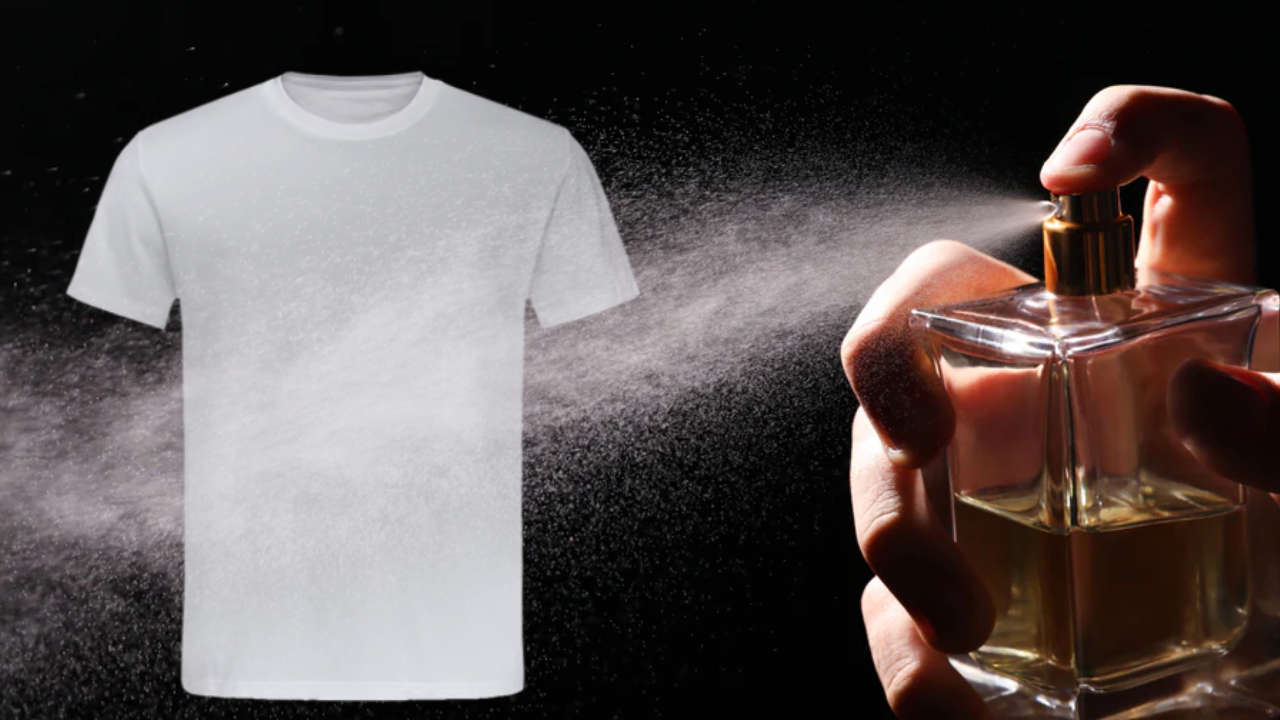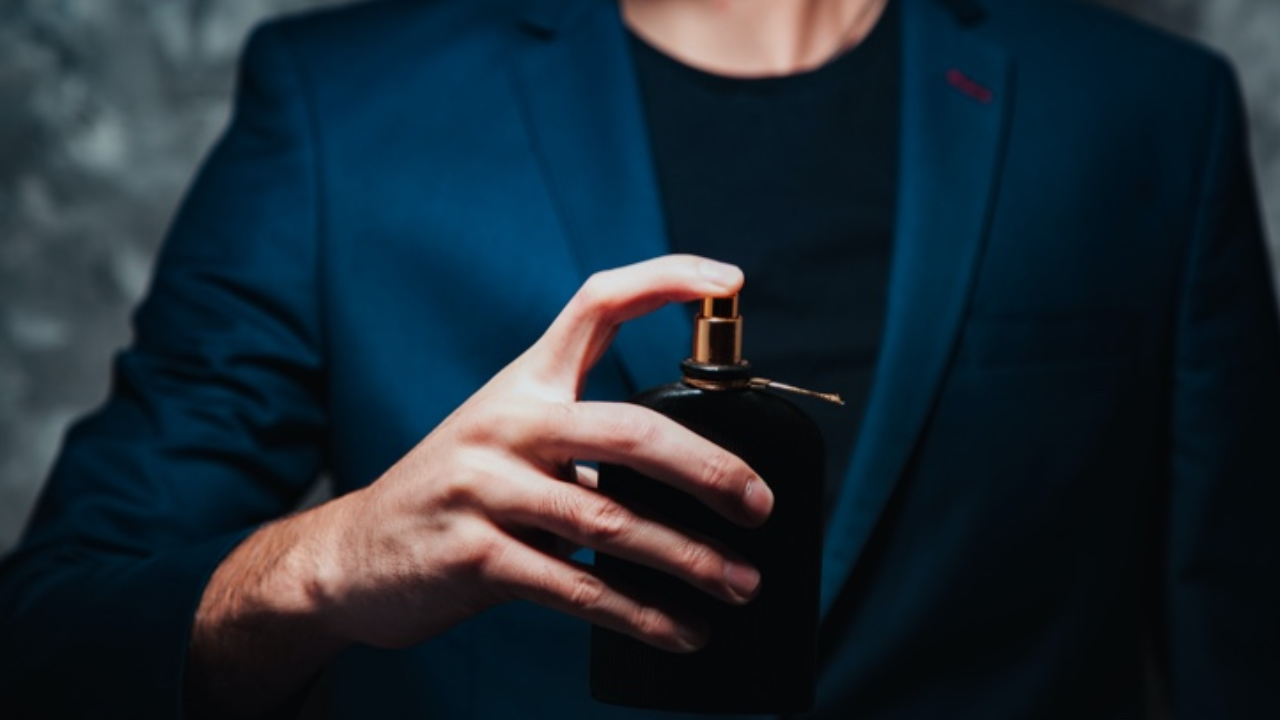When it comes to wearing cologne, there’s an ongoing debate about whether it should be applied directly to your skin or your clothes.
Some people swear by spritzing their favorite fragrance on fabric for longevity, while others adhere strictly to the idea that cologne belongs on the skin. The truth, however, is that both methods have their pros and cons.
Before diving into whether cologne should be sprayed on clothes, it’s important to understand its fundamental purpose. Cologne is designed to enhance an individual’s natural scent. It works by interacting with the heat and oils of your skin, which helps the fragrance to develop over time, revealing different notes in its composition.
Fragrances typically come in layers: the top notes are what you smell immediately, the middle notes appear after the top fades, and the base notes are what linger on your skin the longest. When cologne is applied to your skin, this progression occurs naturally, allowing the fragrance to evolve throughout the day. This transformation, however, might not happen in the same way if you choose to spray it on your clothing instead of your skin.
Table of Contents
Can You Spray Cologne on Clothes?
The simple answer to whether you can spray cologne on clothes is yes, you can. However, it’s crucial to be aware of the potential consequences and nuances that come with this practice.

Longevity of the Fragrance
One of the main reasons people choose to spray cologne on their clothes is because of the enhanced longevity. Fragrances can fade relatively quickly when applied to skin, especially if you have dry skin or if the scent doesn’t bind well to your natural oils. Fabrics, on the other hand, are more absorbent, meaning they can hold onto a scent for a longer period.
While this might seem like an advantage, it can also be a double-edged sword. A fragrance that lasts longer on clothing can become overwhelming if over-applied. Unlike skin, fabric doesn’t “breathe” the same way, which means the scent may not develop or diffuse naturally, and you could end up with an overpowering smell.
The Risk of Staining
One of the biggest downsides to spraying cologne on clothing is the risk of staining. Many colognes contain oils and alcohol, which can leave visible marks on fabrics, especially lighter or more delicate materials such as silk, linen, or light-colored cotton. These stains can be stubborn and difficult to remove, often requiring special cleaning solutions or even a trip to the dry cleaner.
Additionally, dark-colored colognes can leave tinted marks on lighter fabrics. Even if the stain is not immediately visible, over time, repeated application can result in discoloration of your clothes. For this reason, it’s always a good idea to do a small patch test on a hidden area of the fabric before spraying cologne all over it.
Fabrics and Fragrance Performance
The type of fabric you’re wearing plays a significant role in how a cologne will perform when sprayed on your clothes. Synthetic fabrics, such as polyester or nylon, tend to hold onto fragrances longer because they are less breathable compared to natural fibers. However, they can also trap the scent in a way that might make it smell less pleasant over time. On the other hand, natural fabrics like cotton, wool, and linen may not hold the fragrance as long but can allow it to breathe better, creating a more pleasant, subtle diffusion.
If you choose to spray cologne on your clothes, it’s best to stick to natural fabrics to avoid any potential issues with synthetic fibers trapping or distorting the scent.
Pros and Cons of Spraying Cologne on Clothes
Let’s break down the primary advantages and disadvantages of applying cologne to clothing:
Pros
- Longer-lasting scent: Fragrances tend to stick to fabrics longer than they do to skin, allowing the scent to linger throughout the day.
- Protection from skin reactions: Some people may have sensitive skin that reacts to the alcohol or other ingredients in cologne. Applying it to clothes can help avoid irritation or allergic reactions.
- Convenient application: Spraying on clothes might be more convenient, especially if you’re in a rush and want to make sure you smell good without worrying about reapplying throughout the day.
Cons
- Staining risk: Fabrics, especially light and delicate ones, are prone to being stained by cologne. This can be difficult or even impossible to remove.
- Distortion of the scent: When applied to fabric, cologne may not go through its natural progression of notes, meaning you won’t experience the full depth of the fragrance as you would if applied to skin.
- Overpowering fragrance: Clothes hold onto scents longer and may make the fragrance smell too strong or overpowering over time.
Best Practices for Applying Cologne to Clothes
If you decide to spray cologne on your clothes, there are a few best practices you should follow to ensure you don’t run into any issues with staining or scent distortion.
Spray from a Distance
When applying cologne to your clothes, it’s essential to spray from a distance. Hold the bottle at least 10-12 inches away from the fabric. This ensures that the mist spreads evenly and reduces the risk of the fragrance concentrating in one spot, which can lead to staining or an overly strong scent.
Test on a Small, Hidden Area First
Before applying cologne all over your clothes, test it on a small, inconspicuous area first, especially if you’re wearing a delicate or light-colored fabric. This will help you determine whether the cologne will stain the material before you commit to spraying it on the more visible parts of your outfit.
Avoid Delicate and Expensive Fabrics
If possible, avoid spraying cologne on delicate fabrics such as silk, lace, or fine wool. These materials are more prone to staining and may not hold the scent in a way that is pleasant. Likewise, if you’re wearing an expensive or cherished piece of clothing, it’s better to err on the side of caution and avoid spraying cologne on it altogether.
Layer Your Fragrance
Another option to consider is layering your fragrance by using scented body washes, lotions, or deodorants from the same scent family as your cologne. This way, you can enjoy the longevity of the fragrance without having to rely on applying it directly to your clothes.
Situations Where Spraying Cologne on Clothes Makes Sense

There are some situations where spraying cologne on your clothes can be a smart move. For example:
- Hot and humid climates: In hot weather, your skin can sweat, which may cause the cologne to evaporate faster or mix with sweat, altering its smell. In such cases, spraying cologne on your clothes can help preserve the fragrance throughout the day.
- Long events or occasions: If you’re attending a long event like a wedding or a formal gathering where you want your fragrance to last, applying it to your clothes can provide added longevity.
- Wearing heavy outerwear: In colder climates, when you’re wearing thick coats or layers, cologne applied to your skin might get lost beneath your clothes. Spraying it on your outerwear ensures that the fragrance is noticeable when you’re bundled up.
What To Be Aware Of: Common Mistakes
As with any grooming habit, there are potential pitfalls when it comes to spraying cologne on your clothes. Here are a few common mistakes to watch out for:
Over-applying
Because fabric holds onto scents longer than skin, it’s easy to overdo it when applying cologne to clothing. Start with a light spritz and build up if needed. It’s always better to err on the side of caution, as overpowering scents can be unpleasant for those around you.
Neglecting Fabric Care Instructions
Always check the care instructions for your clothing before spraying cologne on it. Some fabrics are more sensitive to chemicals and may be more likely to stain or be damaged by the alcohol in cologne.
Forgetting to Wash Clothes
If you frequently spray cologne on your clothes, it’s essential to wash them regularly. Fragrances can build up over time, creating a stale or unpleasant odor. Be sure to clean your clothes properly to avoid any residual buildup.
